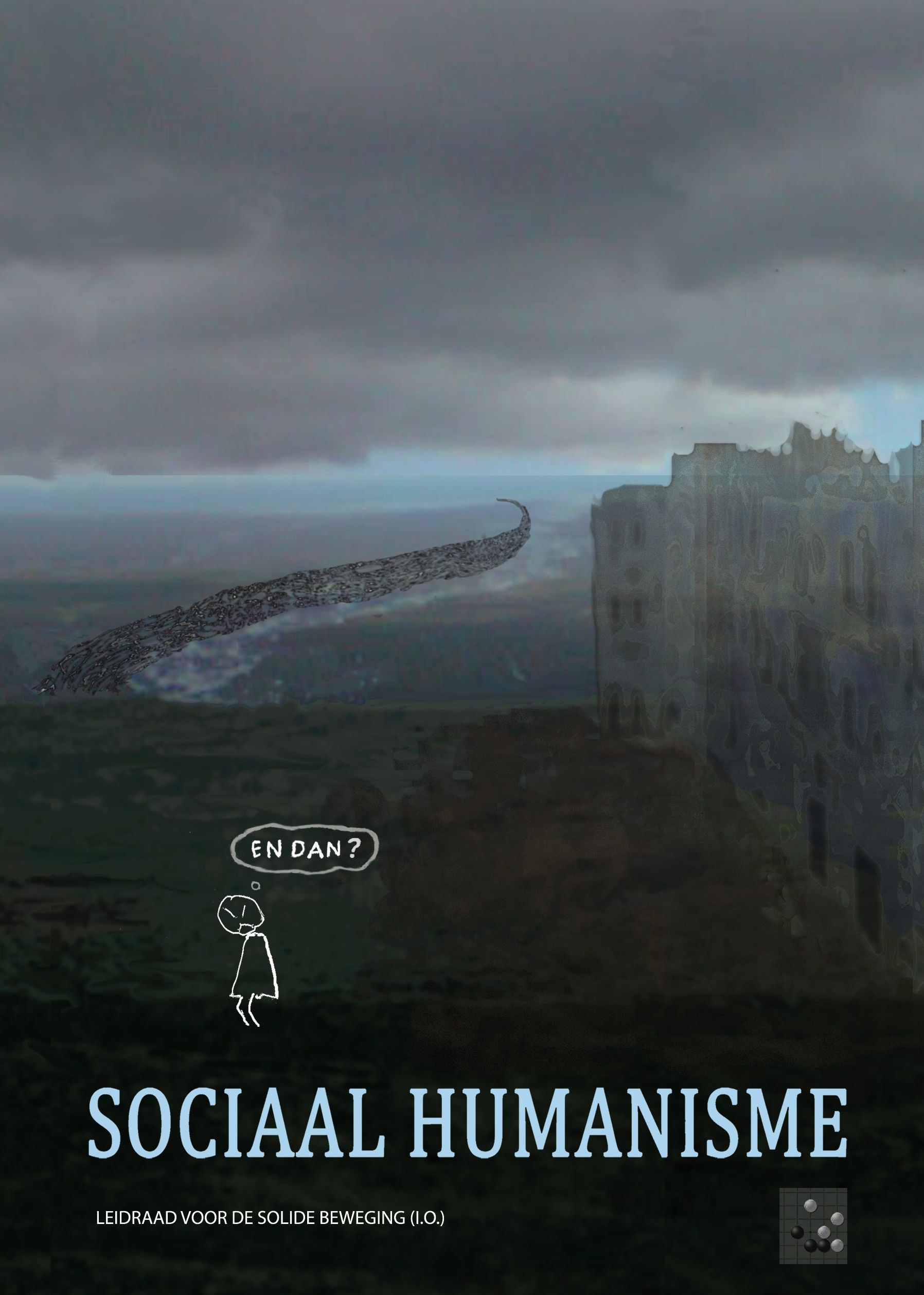| The book “Social Humanism” is intended for discussion, learning and getting together, getting organized. At present Sociaal Humanism is only available in Dutch. However some chapters will be translated soon and made available on this site. Translating and printing the whole book can only begin when sufficient support is offered.
You can support the translation of Social Humanism here . |
 |
Is our Western civilization heading for disaster? Will it be the victim of its own success: capitalism, democracy, tolerance, Christian values? Making it vulnerable in a world where these ideals cannot be found at all in some other countries? Or will it perish as a result of an economic system causing enormous inequalities and imbalances, putting nature on a gigantic strain, crashing into boundaries it cannot overcome?
Can we see our future only as a continuation of the present? More of the same, built on permanent growth, driven by hyped material desires, too often resulting in greed and narcissism?
Should this result in disaster, wars, nationalism or a “back to the Middle Ages?” Alternatives that don’t offer a new perspective?
These are questions that arise when critical reviewing developments in contemporary Western society. Which increasingly need to be answered in the affirmative. A criticism sounding louder and gaining support.
Usually, thinking stops with this criticism.
So: What now?
The world is reigned with the interests of a cosmopolitan elite at heart, without any contrary power serving the interest of the rest of the world population, the 99%. Such a contrary power cannot exist because of the deep cultural fissures splitting the world. Even in the EU, where these fissures are minimal, the elite does not find a serious countervailing organized power on its way.
Because of the atomistic individualism that is intrinsically tied to liberal humanism: people are no longer willing or able to organize themselves. One experiences oneself as an elementary particle, an atom that is entirely self-propelled among all the other particles within social space. If one would let go of this delusion of equality, it would be clear that the particles exert forces on each other, and that some heavy particles exist which exercise more force on the light ones than vice versa. The problem of this delusion is the subject of the first part of “Social Humanism”.
Based on this analysis of the current, dominant humanism, an alternative form of humanism is developed: Social Humanism; the subject of the second part. Thus a way is opened to organize, to get together with others to form a countervailing power. It also opens the way to truly be an individual, rather than a replaceable consumer and worker. Just like the usual liberal humanism, Social Humanism is a philosophy of life. It turns out to be quite a challenge to acquire this belief. The individualistic stubbornness with which we are raised is in the way.
Then the real work begins: what are the causes of the failure of our institutions and what to do about it? The political system is powerless to tackle the problems of our time. Left or right, EU or City Council: they have little or no control. A fundamental change in the way law and democracy function is necessary if we want to regain some control over what comes towards us.
This is not about what some person or party has done wrong, but why this is structural. Ideas that our present situation is caused by the “EU”, “Migration”, “Euro”, “banks” or “Islam” are not sufficient. The question is which structures allow banks to continue with derivatives and bonuses, what forces determine the “refugees” EU policies and the functioning of the media; how it is possible that “justice” in its present form can endure.
Media and the parliamentary system turn out to be part of the problem. For a solution, these systems will have to change dramatically. Winning elections won’t change a thing. Whoever will be prime minister or president will not be much better than his predecessor in an unchanged system. We seem to be trapped; there is no way out.
In part three of Social Humanism different social systems are critically analyzed; an attempt is made to determine where they are structurally dysfunctional. Because the dysfunctioning of these social systems — parliament, government, judiciary, media, economy — a fundamental approach is necessary. In the fourth and final part some possible transformations of a number of systems are sketched.
The last chapter, Coup Europe, can be read as a sketch of what this transformation would look like as a practical political policy; how to start getting our social systems working properly.
The book “Social Humanism” is intended for discussion, learning and getting together, getting organized. At present Sociaal Humanism is only available in Dutch. However some chapters will be translated soon and made available on this site. Translating and printing the whole book can only begin when sufficient support is offered.

Reacties
Social Humanism — Geen reacties
HTML tags allowed in your comment: <a href="" title=""> <abbr title=""> <acronym title=""> <b> <blockquote cite=""> <cite> <code> <del datetime=""> <em> <i> <q cite=""> <s> <strike> <strong>